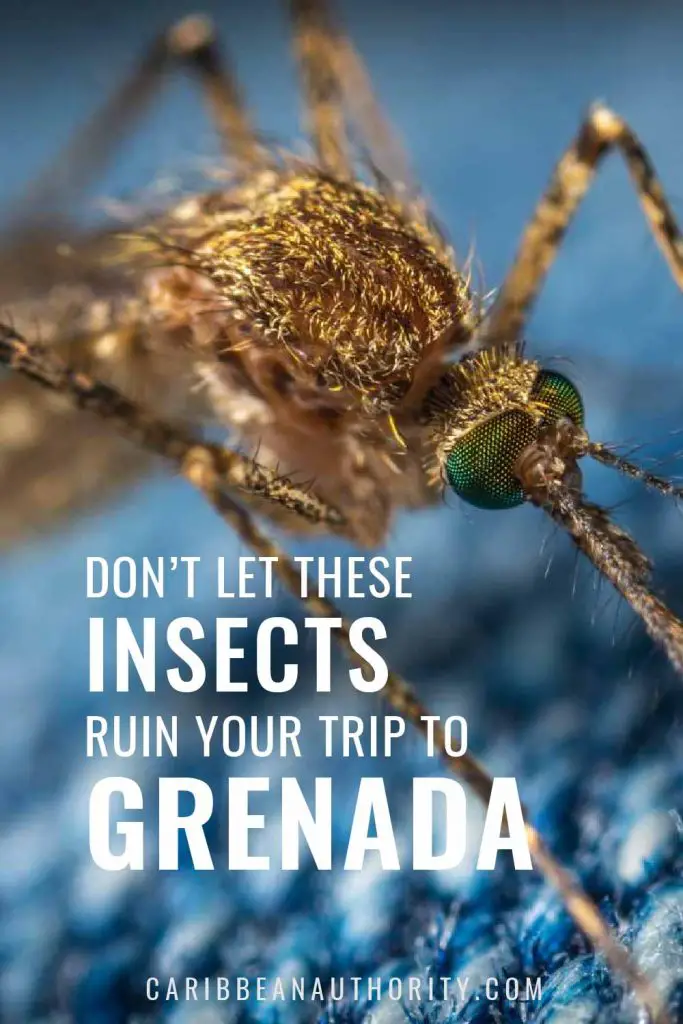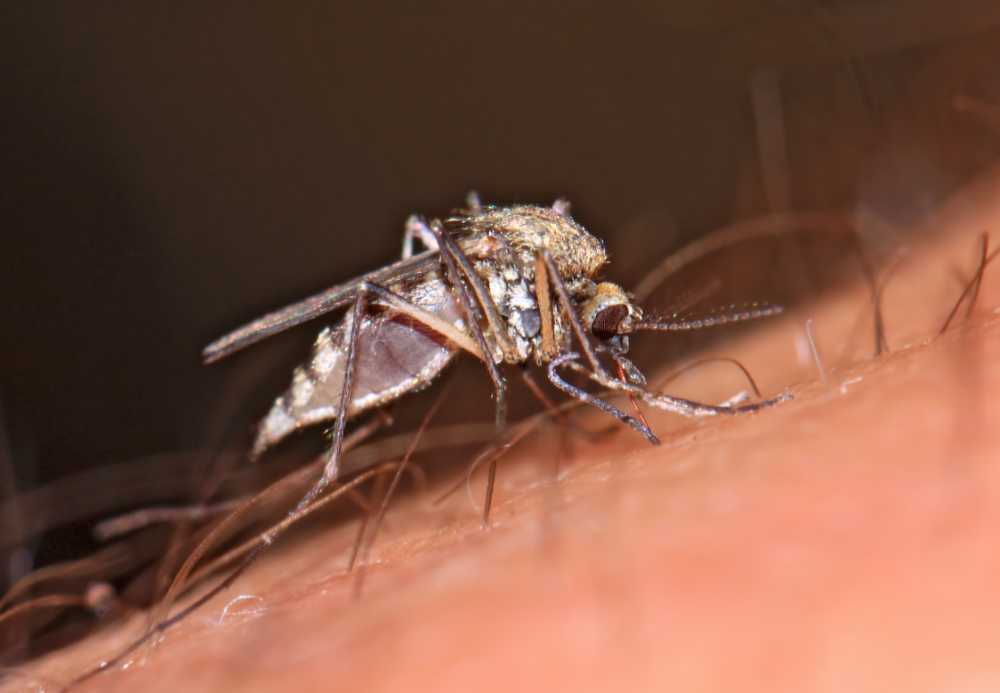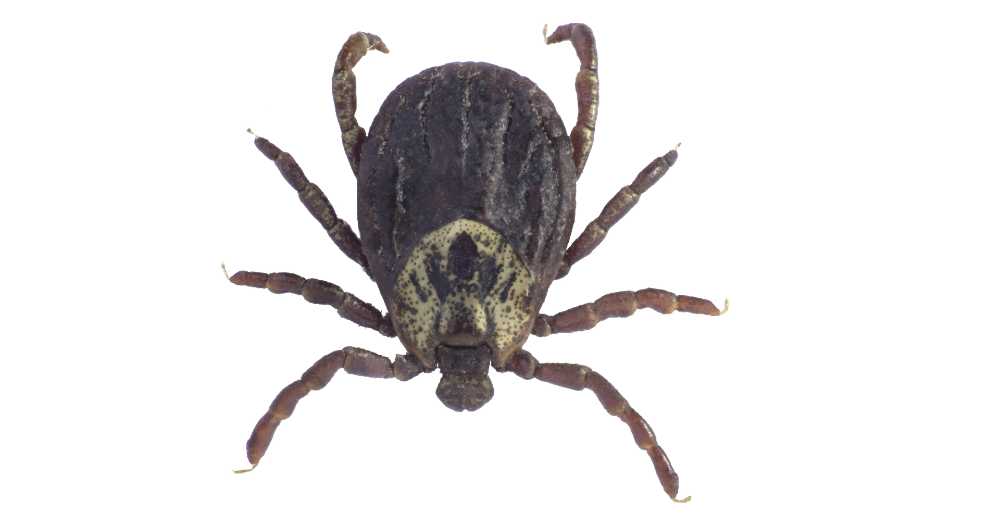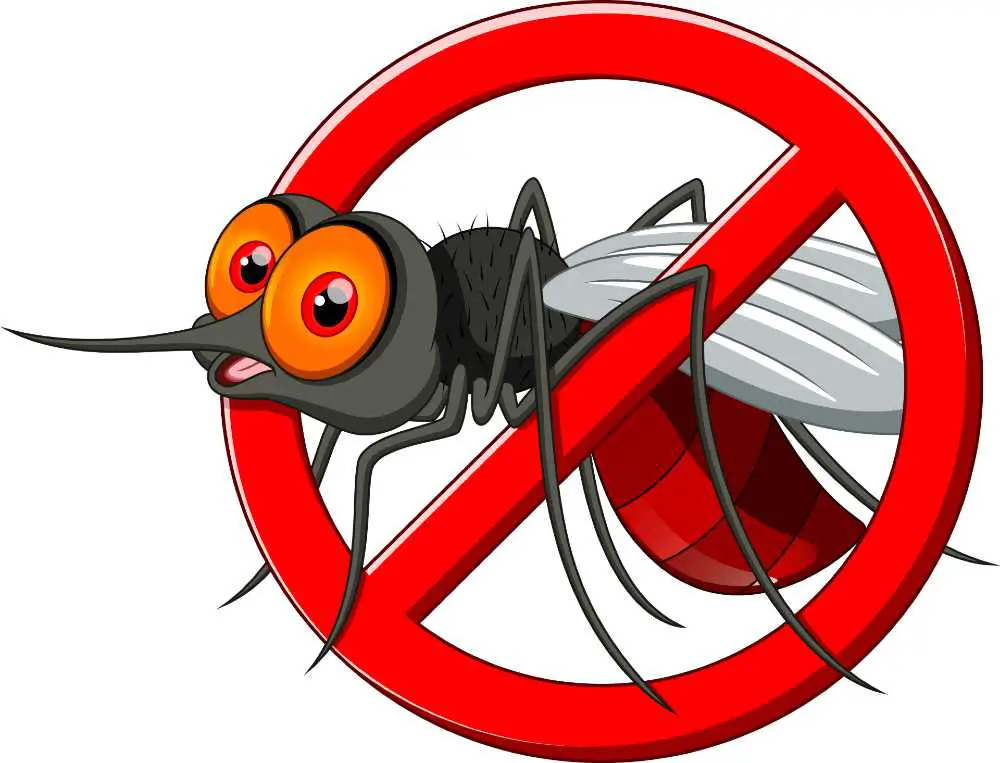You’ve heard that a trip to Grenada requires you to pack bug spray, but why? What kind of insects are on Grenada anyway? More specifically, what insects do I need to be concerned about?
Before you visit Grenada, you need to be aware of these insects and how to avoid them so they don’t ruin your trip.
- Mosquitoes
- Ticks
- Sandflies
- Chiggers
When I visit Grenada, I plan on checking out the interior of the island – hiking the mountains, finding the waterfalls, going on plantation tours, and more. The last thing I want to do is come back from my trip riddled with bug bites or, worse – some sort of disease caused by a bug bite.
To avoid all this I dug into the details and discovered not only which bugs were on the island but also what I should be worried about and why, how to avoid getting bit by a bug, and what to do if I am bitten by a bug.


Mosquitoes
Oh yeah, Grenada has mosquitoes. In fact, what locale doesn’t have mosquitoes? Even in Wisconsin, mosquitoes try to ruin our BBQs, camping trips, and bonfires.
So, what’s different about the mosquitoes in Grenada? The difference is they can be carriers of certain illnesses, including Dengue, Zika, and Yellow Fever.
Dengue
The mosquitoes in the Caribbean, including Grenada, can be carriers of febrile illness (a medical term for fever) called Dengue. These mosquitoes (Aedes aegypti) bite during the day. The CDC states, “Dengue is the leading cause of fever-related illnesses among travelers returning from the Caribbean”.
What’s it like to contract Dengue? After an incubation period of about 5-7 days, the symptoms of Dengue kick in and primarily include 2-7 days of fever, severe headache, muscle, joint & bone pain, rash, nausea, and vomiting. According to the CDC, most people recover after about a week.
There’s no medication to treat dengue, but the CDC does recommend you see a doctor and advise of your travels. He will likely recommend rest, taking a fever control over-the-counter medicine like acetaminophen, and lots of fluids like water with electrolytes.
Watch for signs of severe Dengue. If symptoms become severe, dengue can become a medical emergency. About 1 in 20 people with dengue will develop severe dengue. The CDC advises to go to the emergency room if any of these symptoms appear:
- Stomach or belly pain
- Vomiting at least 3x in 24 hours
- Bleeding from the nose or gums
- Vomiting blood or blood in the stool
- Feeling tired, restless, or irritable
Zika
Zika is primarily spread by a mosquito bite from the Aedes species. These mosquitoes also bite during the day. If contracted, the virus can be passed from a pregnant woman to her unborn fetus and can cause severe birth defects. According to the WHO (World Health Organization, Zika has also been associated with other complications of pregnancy, such as preterm birth and miscarriage.
Grenada is among an area that the CDC has deemed “had a Zika transmission but is not currently experiencing an outbreak”. The United States also falls under this category.
If you are pregnant and decide to travel to Grenada, given the risk of being bit by a mosquito carrying the Zika virus, you must decide if the risk is worth it. Check the current status of Zika transmission status on the CDC website as input to your ultimate decision to travel or not. The CDC also recommends you talk to your healthcare provider about the potential risks.
Once infected, Zika can be transmitted to others through sexual intercourse.
According to the WHO, those who contract the Zika virus can expect symptoms such as fever, rash, conjunctivitis, muscle & joint pain, and headache. An increased risk of neurologic complications is also associated with the Zika virus infection. Learn more at the WHO website.
Yellow Fever
Mosquitoes in the Caribbean can also be carriers of Yellow Fever but do not impact most people.
If you’re traveling from the United States, you don’t have to worry about Yellow Fever. However, if you’re traveling from a country with a high risk of Yellow Fever transmission, you could be impacted so the CDC advises you to get a Yellow Fever vaccination before you travel anywhere in the Caribbean.
For Americans, this means you’ve been to a country with a high risk of Yellow Fever transmission, such as several countries in Africa and some Central and South American countries like Argentina, Guana, Peru, and more.
Ticks
According to the NCBI (National Center for Biotechnology Information), over 11 TBPs (tick-borne-pathogens) have been identified in Grenada.

TBPs are bacteria and viruses from ticks that can cause disease
The majority of TBPs reported from Grenada were from dogs and cattle, with fewer reports of TBPs from cats and very few reports from humans.
That sounds like great news! However, the NCBI points out that human reports may be underreported and that there is a need for the implementation of a solid management system to accurately track the instances of TBPs and originating tick species. A system would also allow for the identification and tracking of TBPs from wildlife as well.
Through my research, I’ve not identified any illness or disease a person is likely to acquire from a tick bite in the Caribbean. That doesn’t mean it doesn’t exist; I just was not able to find anything.
Sandflies

These nasty creatures are also referred to as midges or no-see-ums. They are tiny blood-suckers who are attracted to warm-blooded subjects, including people and live in the sand and mangrove areas. They are a nuisance but not known to cause disease.
They can often be conjured up by digging into the damp sand where the female has laid her eggs. Some beaches are worse than others, so be sure to ask about the condition of sandflies on the nearby beach before booking the resort or hotel.
Chiggers

Chiggers are actually a type of “mite” that moves about on the tips of leaves and grasses. When the foliage is brushed against, the chigger can transfer to your body, looking for a warm place to hang out. Warm spots include under the waistband of underwear and other unmentionable “warm spots”.
They bite and suck your skin leaving behind an irritating rash. Once they’ve gotten their fill, they drop off your body.
What about bed bugs?
Bed bugs are disgusting and enormous pain in the ass (I would assume never had the displeasure), but they don’t carry disease. Make sure the accommodations you choose are respectable and don’t have a reputation for bed bugs.
How to Avoid Bug Bites

There are ways to avoid falling victim to bug bites while visiting Grenada.
Clothing
- Wear clothing that covers your arms and legs, such as long-sleeved shirts, long pants, and shoes.
- If hiking in the forest, tuck your pants into your socks, avoid contact with long grasses and shrubs, and stick to the middle of the trail.
- Wear clothing that is treated with the pesticide called “permethrin”, especially if you plan to hike the interiors of Grenada. Permethrin-treated clothing kills or deters mosquitoes and ticks.
Avoid Scented Products
- Don’t wear scented products such as shampoo, soap, perfume, and after-shaves.
Use Bug Spray
- Apply bug spray that contains DEET. According to the CDC (Center for Disease Control), to protect against mosquitoes and ticks, you need a product that contains at least 20% DEET that will protect you for several hours.
- For mosquito protection, products that also contain one or more of these ingredients can also be effective: Picaridin (also known as KBR 3023, Bayrepel, and icaridin), Oil of lemon eucalyptus (OLE) or para-menthane-diol (PMD), IR3535, 2-undecanone.
- Note: There’s no evidence that any of the following effectively repel bugs: citronella-based products, Vitamin B1, garlic, repellent-containing wrist/ankle/neck bands, etc.
Check for Ticks
- Check regularly for ticks both on your person and your gear.
Avoid Animals
- Stay away from animals – dogs, cattle, and cats in particular that can have tick-borne diseases.
On the Beach
- Don’t dig into damp sand, which can ruffle up the sandflies.
- Wear DEET bug spray along with your sunscreen (apply sunscreen first).
Your Accommodations
- Make sure there are no ripped screens or doors, and ensure they are tight-fitting.
- Sleep under an insecticide-treated bed net, especially at a lower-budget type accommodation that may not have enclosed rooms with air conditioning.
What to do if you’re bitten by a bug
- Do not scratch it, as that can break the skin and cause an infection.
- Thoroughly clean the area with soap and water or some type of disinfectant like peroxide or alcohol.
- Apply anti-itch products such as calamine lotion or 1% hydrocortisone cream to reduce the likelihood of scratching the bite.
- If you’ve been bitten by a tick, remove it. But be sure to remove it properly because you don’t want to leave parts of it behind. The CDC offers instructions for proper tick removal.
There you have it. The real, not-so-fun side of the Caribbean. But really, there are bugs everywhere, including your own backyard. Am I right? The key to making sure the bugs in Grenada don’t ruin your trip is to educate yourself. I hope this article has done just that and you feel even more prepared to move forward with planning your trip.
Obviously, you’re the type of person who likes to thoroughly investigate a new destination before visiting it. So, maybe you’d be interested in my article Are There Snakes in Grenada? or Are There Sharks in the Waters of Grenada?
Happy planning!








